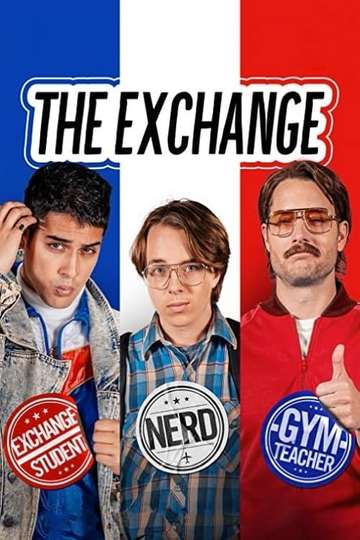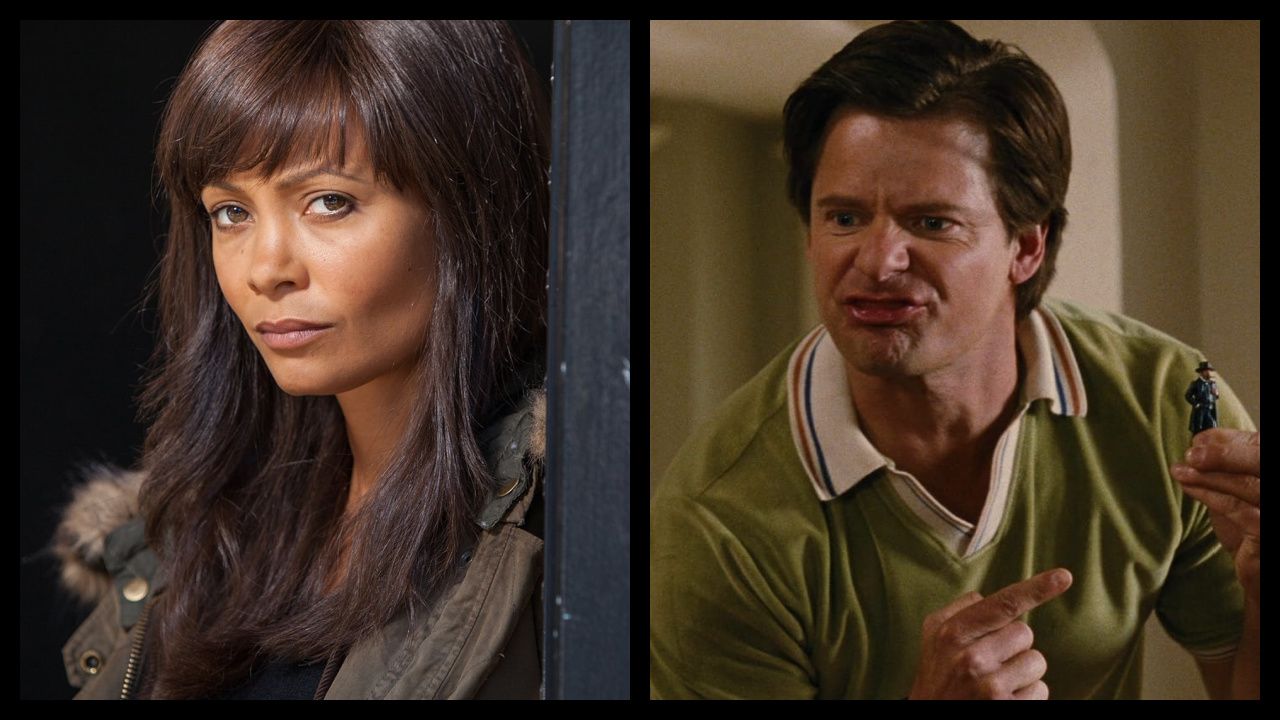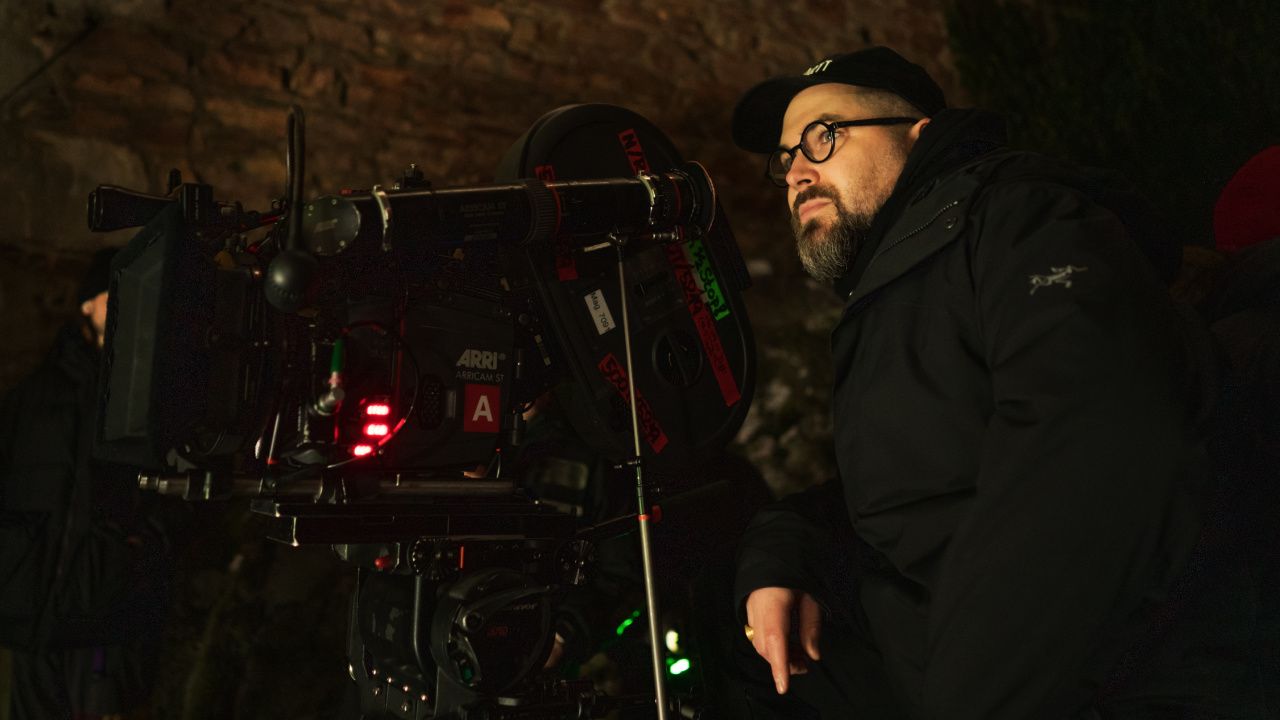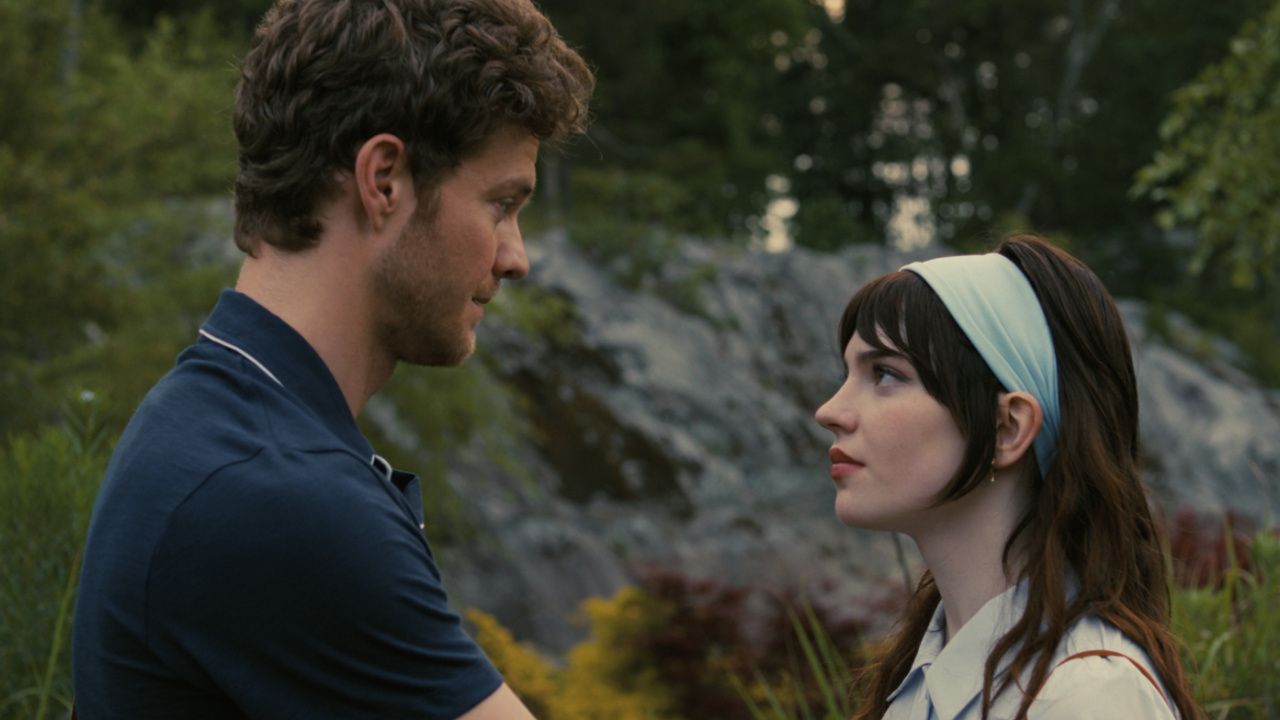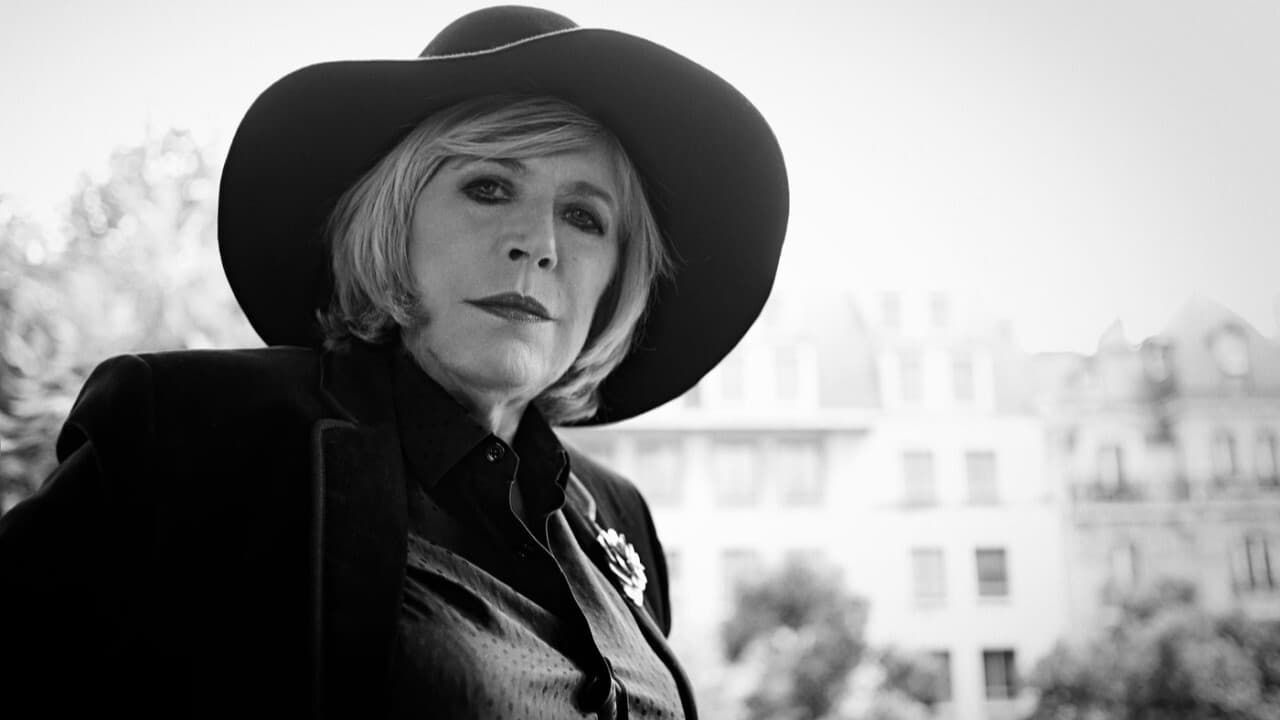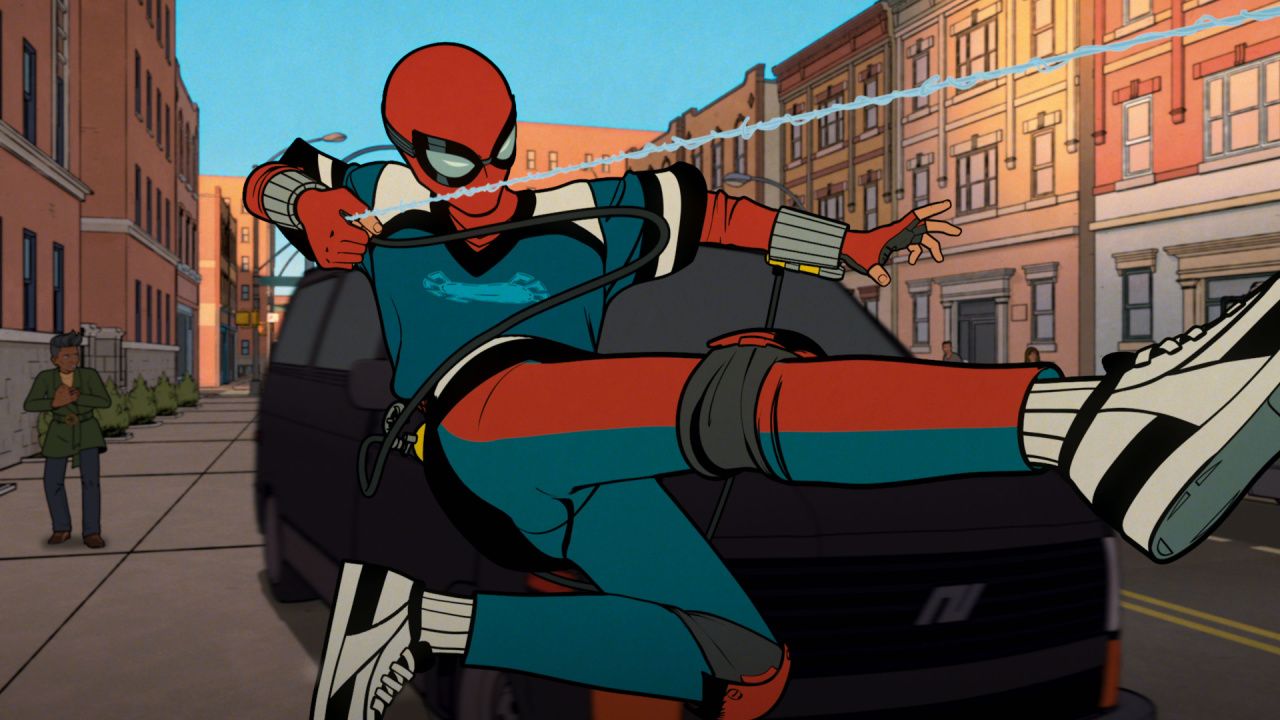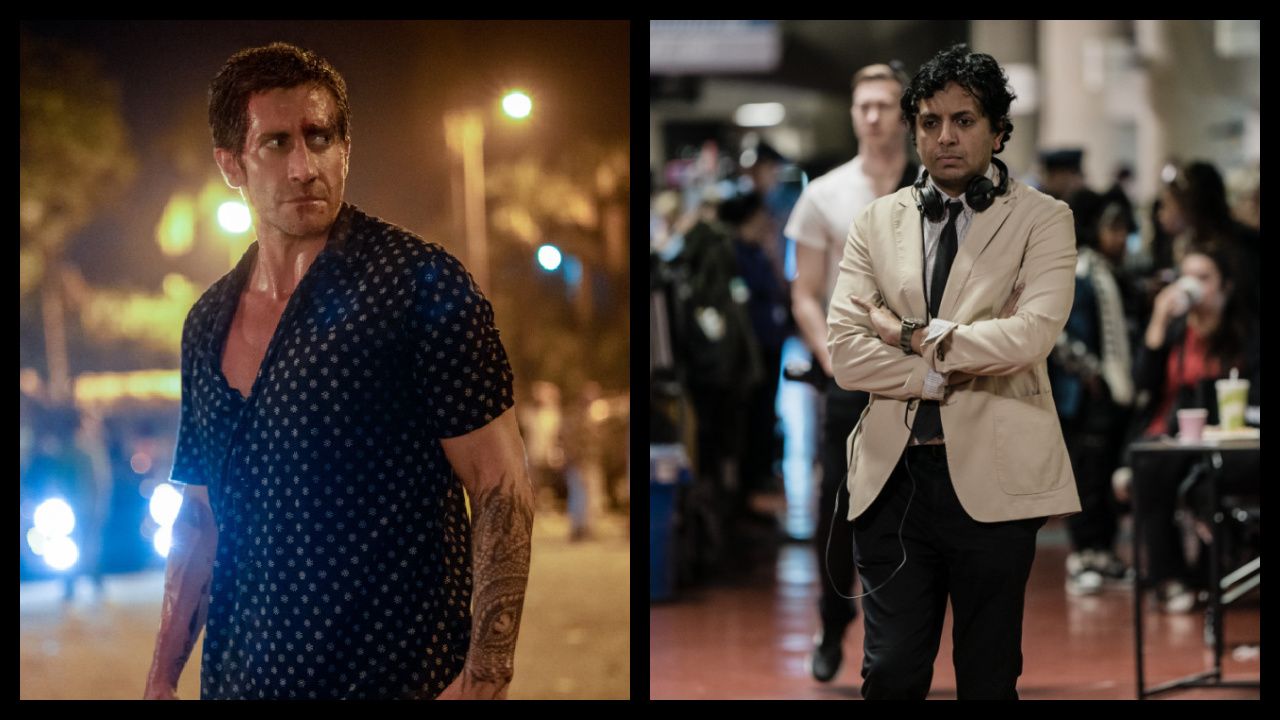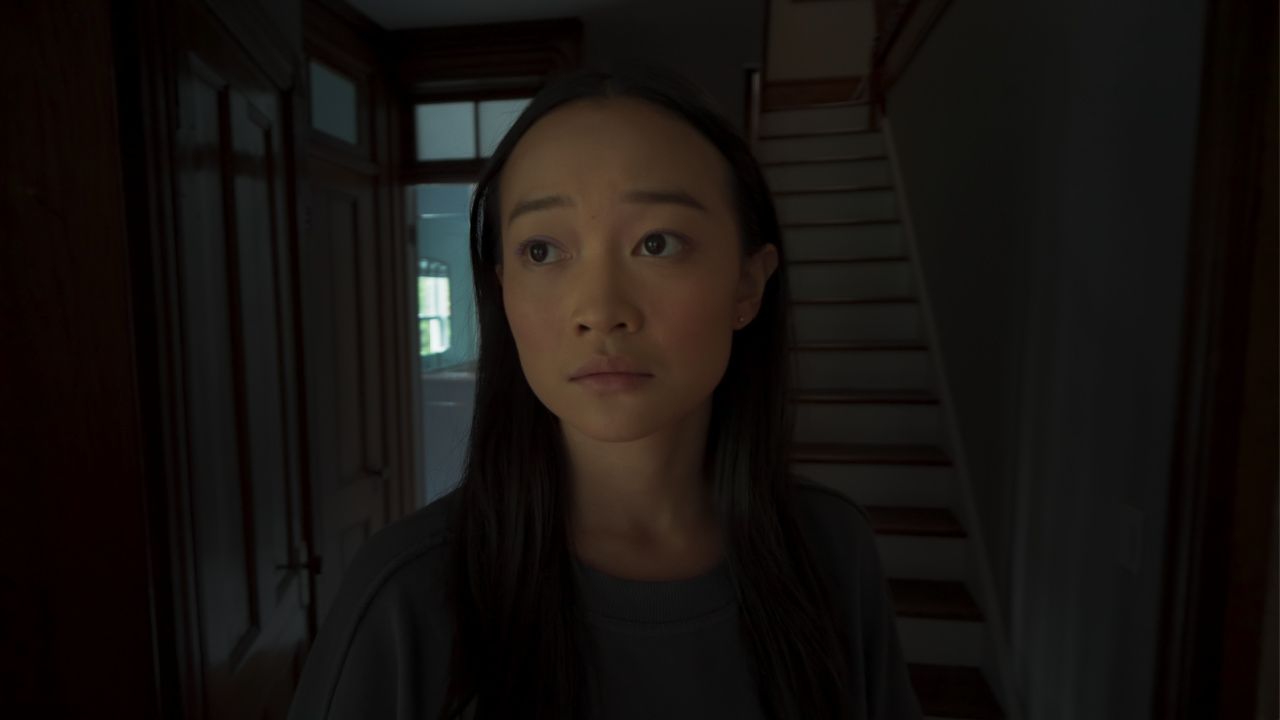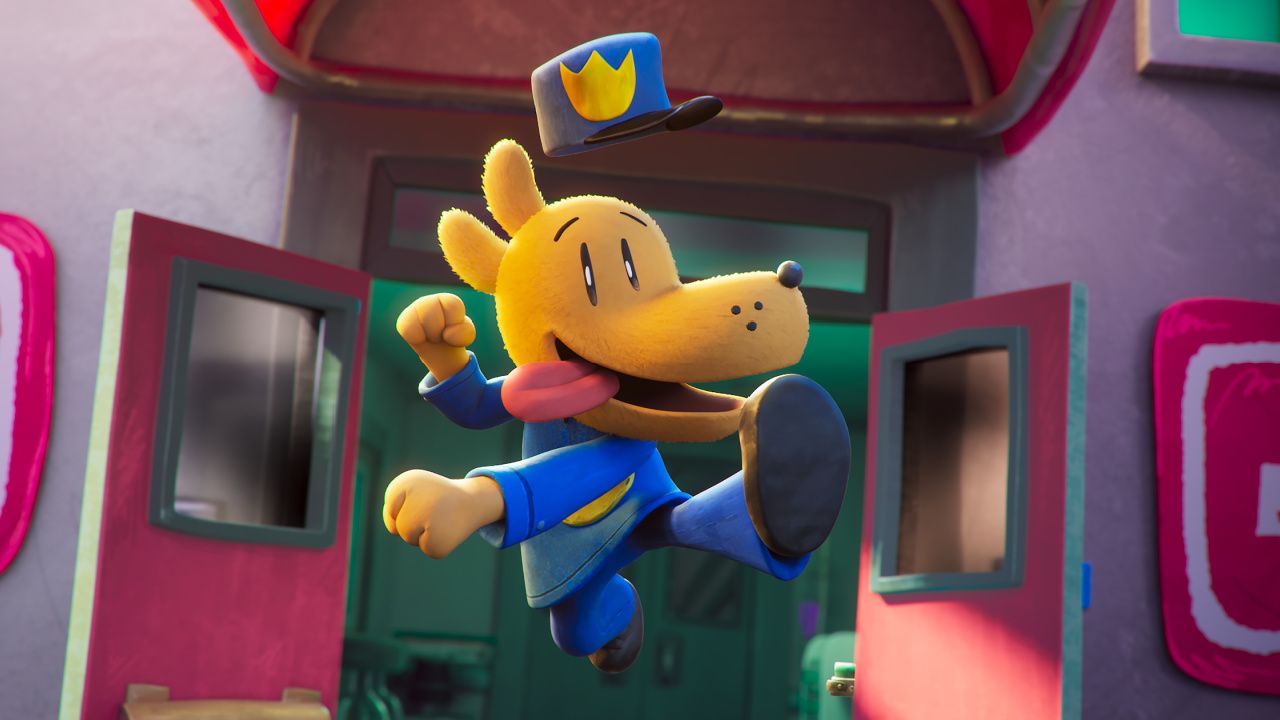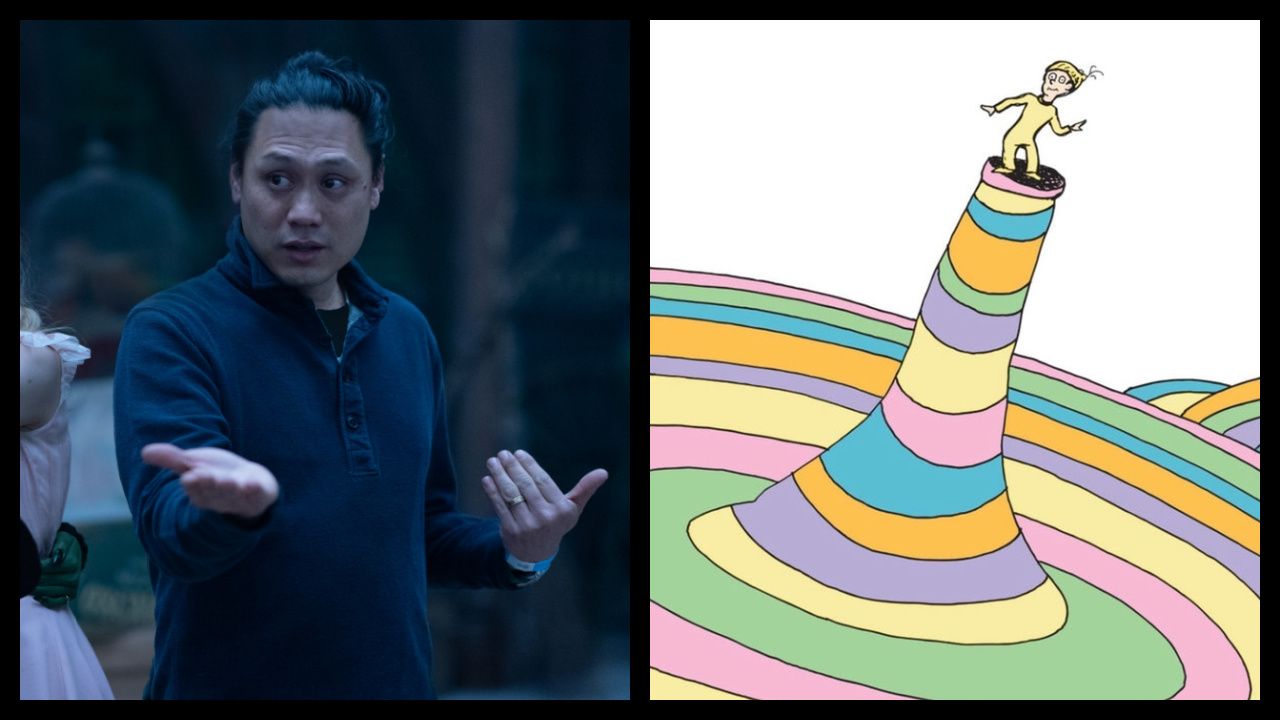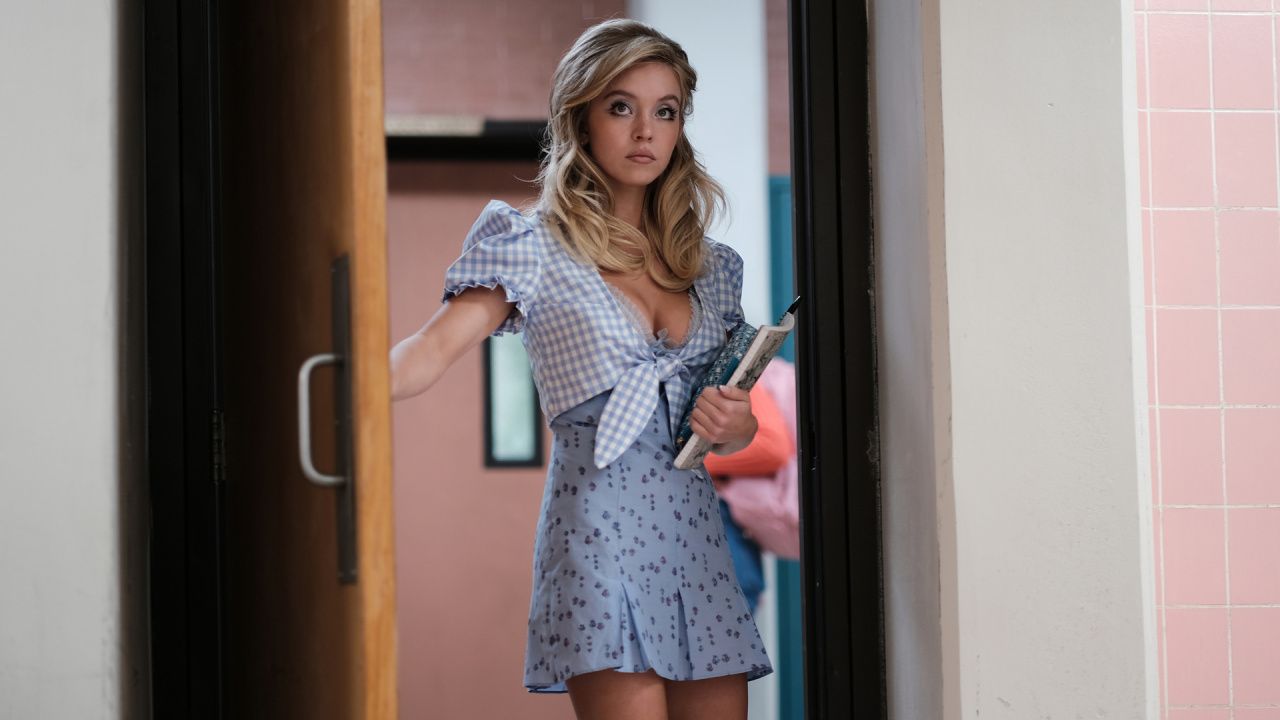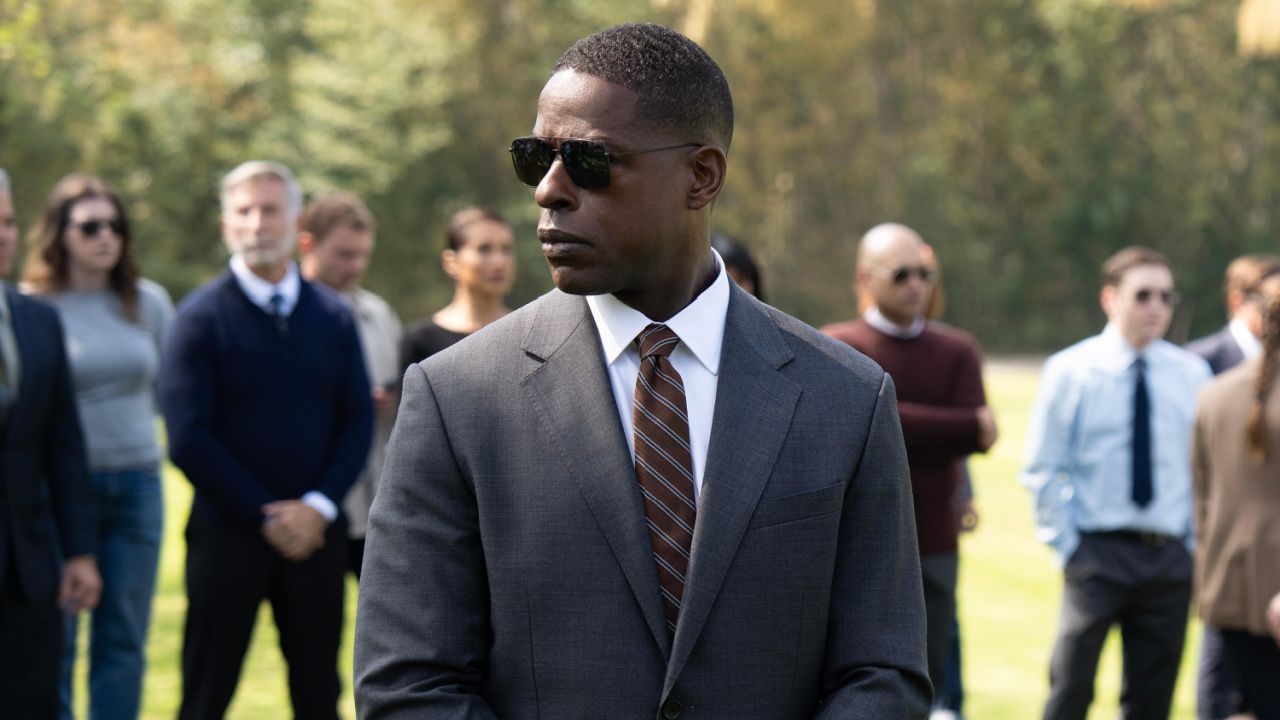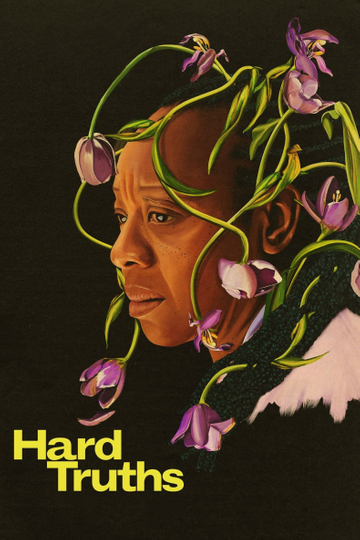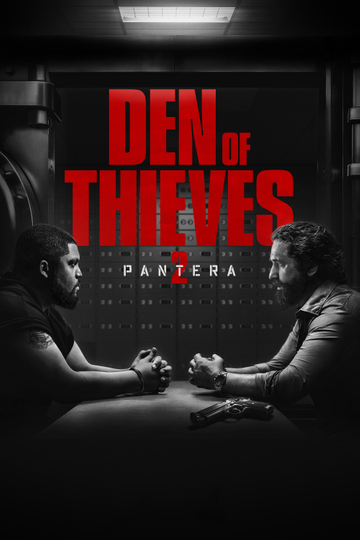‘The Exchange’ Director Dan Mazer and Writer Tim Long Talk About their New Comedy
The filmmakers discuss making a movie that combines real emotion with raunchy comedy.
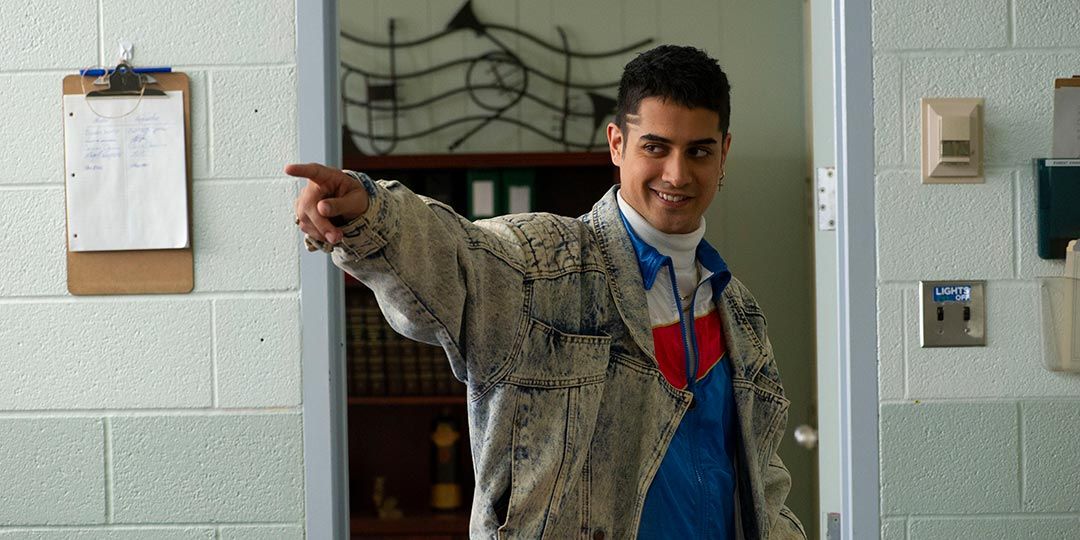
Avan Jogia in 'The Exchange'
‘The Exchange’ is based on the experiences of Tim Long (a longtime writer for ‘The Simpsons’) when his family hosted a French foreign exchange student in the 80s. The movie is directed by Dan Mazer, Sacha Baron Cohen’s frequent collaborator. The two filmmakers took time to talk to Moviefone about their new movie.
First up, director Dan Mazer talks about the movie.
Moviefone: You're a director from the British Isles, you're shooting in Canada, you've got your lead from Australia. This is quite the Commonwealth production.
Dan Mazer: Yeah, really, and we've got a few Americans thrown in there as well, so the land that we conquered and then you took it back, so there's a bit of that going on. I like to keep the British Empire alive, whatever way I can in 2021. No, it's interesting because I think it actually speaks to the universality of the story. I think it's such a relatable, universal, identifiable story that people from all over the world read it and just went, "Yeah, I want to be part of that. I understand it, it resonates with me and there's a little part of my childhood and my growing up that speaks to me from the movie," so I think that's a testament to Tim's great script.
MF: How did you get involved with this in the first place?
Mazer: So, very sort of traditional thing, I sort of said to my agency, which sounds very Hollywood and jazzy, that I'd love to do something that felt a bit more indie, a little bit smaller, a little bit more personal, not a big studio comedy. So, they looked, and they sent me this script, and I didn't read it for ages. I did that thing where everything that I'm supposed to do, I minimize, and I put it in the corner of my computer with a kind of little reminder, and it kept working its way, sort of down the queue and being minimized, minimized, minimized. And then, eventually my agents said, "You have to read it. It's really funny," so I read it and within two pages completely blown away by it, loved it, and it all came together pretty quickly.
I spoke with Tim who's just a genius, funny, funny man. He's a writer, he's been a writer on the Simpsons for 20 years, so has just impeccable comic credentials and pedigree, and we got on incredibly well. I felt a real kinship with the story having, not grown up in a small Canadian town, but in a small English town, and I had a French exchange student. The movie's about a guy who gets a French exchange student to come over. I, similarly, to Tim... It's also autobiographical, by Tim Long the writer. I, similarly, to him felt slightly kind of different to my peers around me, who kind of thought I was a bit weird for being creative and liking weird bands and dressing a bit oddly. And so, all of that just really chimed, and I just thought, "This is the movie I feel like I shouldn't make, but I have to make."
MF: There's a really fine line that can be tough to walk between the really great laughs you get in this, and in some cases, kind of raunchy material versus real grounded emotion that this story has. What's it take to be able to stay on that line and not kind of sacrifice one for the other?
Mazer: It's really hard, and my sensibilities always err towards the laughs and the funny and everything I've made before has always been like, "Let's just get the biggest laugh possible and as many laughs as possible and screw the emotion," and in this, I've really consciously tried to do something different and had to hold myself back.
And it's really, it's where you in the edit, that's kind of where it all comes together, and you sit there, and you watch it, and you go, "Well, actually this moment's too funny, or we don't need a laugh there, or actually we need a laugh here because the emotion isn't enough." So, Tim and I worked very hard on making sure that there were those kinds of peaks and troughs, that you're never too far away from a laugh because it's ultimately a comedy, but I think what takes you through is the story and rooting for these people.
MF: What does it take to recreate small-town Canada in the '80s?
Mazer: Well, Canada may not thank me for saying this, but it wasn't that difficult. It felt like a lot of places that we filmed hadn't moved on appreciably since the '80s, when I went to visit, and that's kind of the beauty of going to the middle of nowhere in Canada where small towns, I think, are pretty much small towns as they were. So, I think that saves a lot of production budget, number one. Number two, like you, I grew up then and still love the clothes and the bands, so I just took great delight along with my brilliant costume designer, Lea Carlson, to just find that stuff. And actually, the really hard thing is not to go deep into parody because you can make everyone dress in neon and have wet-look perms, and you find it hilarious, but then it's overbearing, and it takes you out. So, I had to hold back from that quite a lot in order to keep the authenticity.
MF: You see Tim and a lot of the town's folks, in the muted shades of the '70s creeping into the '80s, and Stephane's the only one that looks like he could be an extra on a 'Miami Vice' set.
Mazer: Yeah, well, we had a very interesting conversation with the production designer, Nigel, who basically said, "Look, if you go into a house in 2020, not everything's from 2020. People have bought it in the '70s, '80s, '90s," so you have to remember that not everything's just that moment for that year, and the same with clothes and styles. And you have to remember that in a small town Canadian place, they wouldn't get the latest fashions immediately and not everyone's dressing like Duran Duran.
MF: Were you shooting during the pandemic, or did production happen before the outbreak?
Mazer: Just before, we finished just before, which was great, and it's been a little bit delayed, the process of post-production by the pandemic, but I think it's actually a really good time. I think people are ready to laugh. I think people want something that is a little bit uplifting, so hopefully that will help us.
MF: How cold is it when you're shooting outdoors in Canada?
Mazer: Oh, man, a lot. So, like an idiot, I've made another movie since then in Canada, in Montreal, in the winter, and I have the most impressive array of outdoor clothing you can imagine. And if I hear one more time, "There's no such thing as cold weather, it's just bad clothes," then I will explode because Canadians live with it. But minus 27, when I was shooting, I shot Home Alone, which is coming out this Christmas, and in Ottawa, I think, minus 17, which felt balmy in comparison, so yeah.
MF: And it's not like England stays that warm in the wintertime, but I guess it's farther north where you're shooting?
Mazer: Yeah, but it's an amazing thing, when I came back to England in the winter, I'm still wearing t-shirts aggressively to show off how accustomed I'd been to the cold weather in the middle of April, and everyone's just like, "You're a lunatic," and I was, "No, this is like the Caribbean to me. It's amazing, I'm going to show off my bonafides."
MF: When you're shooting outside like that, how does that add complications to your location shoots outdoors?
Mazer: Man. Well, on two occasions cameras froze, which is something I didn't imagine was possible, so you have to stop shooting for the cameras to unfreeze. Also, your overriding instinct is just to finish, you just want to get home, and so, it's really how you have to keep on remembering that "In three months' time, I'm going to be sitting in an edit, and I'm not going to have what I need, so I just have to push on through, even though I can't feel anything, and my energy is sapped. I'm so cold, I could no sooner think of a laugh or an improv line here than fly," but you just have to go, "No. Okay."
It's like going into battle. It's like being kind of Edmund Hillary, and you just have to go and just say, "I'm going to scale the mountain of this sex scene in a car in the same way as he took on Everest, and we will both triumph, and I think, frankly, we will both be hailed as heroes on a similar level."
MF: How much are you working with your actors to let them improv in the moment versus sticking to Tim Long's script?
Mazer: Look, I love improv. That's basically the part of the process of directing that I love most. To me, I'd never understand you've got something on a page that you turn up on a set and you go, "Oh, hold on, that's funny and that's, so I didn't see that there," and when the writer's writing his thing, he doesn't know what the room's going to be like. He doesn't know how cold is going to be. He doesn't know what the actors are going to be like. So, to stick rigidly to the script, I think, does the script a disservice, and the fact that I'm a writer as well I think helps, and all the stuff that I've done with Sacha, where we improv all the time as well, I think that really helps.
So, I will always do a version where we get the scripted pages of the scripted lines and then I'll go, "Okay, let's try this, let's try this, let's try this, let's try this," and actually the most important part of my casting process is making sure that the actors I work with have that ability. So, I love to throw in a bit of improv in the auditions and in the castings and even just chatting to them, making sure that they have a sense of humor is really important because there's no point in trying to get blood from a stone.
MF: I'm glad you mentioned that because it sounds like you're almost searching as you're casting for a vibe as much as the look and their ability to perform.
Mazer: A hundred percent. It's all about the vibe. If I can't sit and have a chat and a laugh and a bit of banter with the actor in those awkward 10 minutes before you go, "Okay, let's put this up on its feet and try it," then I think there's no hope. I've never willingly worked with an actor or cast an actor of my own volition who just hasn't got those chops to them, because that's the joy of it. And also, I think, somebody has to, in order to understand the script as a funny script, they have to be funny as well. So, the 10 minute before the audition is almost as important as the audition.
MF: So, memo to everybody, if you're auditioning for Dan Mazer, make sure that you can riff with him.
Mazer: Exactly, come in with pre-prepared riff lines.
Writer Tim Long talks about writing a script based on his own high school years.
Moviefone: How close is it to your own story? Does it make you extra nervous as a writer to see how people are going to react to your life, or at least your teenage story on screen?
Tim Long: I would say that it's 60% close to what happened in real life. I would say that all of the most egregious behavior by the Tim long character was things that I did. And that's why I decided to name the character Tim Long. I just thought, there's only one person that needs to be embarrassed by this movie and it's me. So let's just belly flop into this. So, to answer your question, I'm naturally sort of a nervous and anxious person anyway. So even if I was writing an outlandish sci-fi movie, I would be anxious. But yeah, given the fact that it's based on events in my life, I am basically catatonic with fear, but at the same time, super excited because what the hell. How often do you get to write a movie that actually comes out with a character named after you, who's played by an actor as talented as Ed Oxenbould. So I'm leaning into that.
MF: When you were younger, did everyone call you the full name Tim Long, like they do in the movie?
Long: It's really funny, there was always like who's playing softball. Well, there's Matt and there's Carolyn and there's Tim Long. I just, for some reason I have one of those Charlie Brown type names, where everyone feels the need to combine both names. And so, yeah, it's a given.
MF: But it sounds like you didn't have a lot of other Tims around.
Long: Yeah. It's a very rare, they're very thin on the ground, but yet even when I call my parents, I'll leave a message and I'll say, "Okay, it's Tim Long calling you on Monday," as if they wouldn't know who it was. It's like I'm a telephone solicitor or something. But yeah, it's just a habit I have.
MF: Were you on set a lot for this shoot?
Long: I was on set from the beginning to the end because I just felt like... For one thing, I'm a full-time writer on 'The Simpsons,' and they could not be more generous about allowing us to take little sabbaticals. So I was there for a solid two months and I just thought what a magical experience. I had no experience in the feature world, but I just thought, well, if you're going to do your first ever movie and who knows whether I'll do another one or when I'll do another one, I want to be there. And thankfully Dan Mazer, just the most talented, it's very rare for someone to be that funny and that nice. Usually you have to pick one or the other, but he's both. And he wanted me around all the time. We pitched on the set, we had lots of fun. So yeah, I was there the whole time and it was kind of a dream.
MF: The movie is really laugh out loud and, at times, raunchy comedy, and yet there's a real emotional core to it. How does that work for you as a writer trying to straddle that line?
Long: I'm glad you picked up on that and I'm glad that you felt that was successful. That's just the way I've always operated. I feel like I love stuff that's really, really funny and then kind of pulls the rug out from under you and makes you sort of choke up. And I'm just a ridiculous softy when it comes to sentimental movies. So I can really have my heart strings tugged. And so I felt like, this isn't a real relationship between two boys who both are way more vulnerable than they initially appear. And so let's just go for it in terms of making it emotional and making it kind of a life-changing experience for both of them.
I think partially it's, I mean 'The Simpsons' is obviously can be ridiculously funny, but working with James L. Brooks, that seems to be his brand. And it's something I've learned with him is that he's made all these movies that are unbelievably funny, but at the end of it, you're like, I hope they end up okay. There's just this feeling that like... And it makes the comedy so much richer when you care about the characters. So that was something that we were really going for.
MF: I can only imagine what it's like being in the writers room for 'The Simpsons,' and how much have you learned over the years. How much are you teaching the newer writers that come in?
Long: Well, I'm not sure about the second part, though maybe they're picking up things here and there. But yeah, I mean, I feel like the many, many years I've been at the Simpsons, it's been like, I've been handsomely paid to go to comedy school. I've learned so much from Brooks and Al Jean, who's been running the show forever, and Matt Selman and Matt Groening just major league world-class comedy talents who always really stress, not just the jokes, but the story and character and making things real on some level. So yeah, I mean, there's no way I would be the writer and stay if I hadn't been at the Simpsons all these years.
MF: What took so long for you to, as an adult, to finally come back and write a story about your teen years.
Long: That's a really interesting question. I feel like when you grow up in a small town, a lot of your focus is how do I get out of here? And then you get out and you kind of convince yourself, okay, I'm out, they're not coming to get me. But then once you feel safe in a new life, you're like, wow, that place was great. You start feeling like those people were wonderful and I'm really lucky to have grown up there. The people were solid and funny and smart and weird. And it just was like if I'd grown up in New York or something, I probably would have become a cocaine addict at age 12 and dead by 20. So it was both an interesting place and a great place to develop as a creative person.
Because literally, this is going to shock you based on the movies, but I was not the most popular kid in the world. So I just spent just years, and I remember the summer months, I would just spend days and days just reading and watching old episodes of Saturday Night Live that were transmitted on Detroit TV, which we got and just like taking myself to comedy school in a way that was safe and great. I have to say it was just wonderful. I got to the point where I found myself telling a lot of, kind of fun, bittersweet stories about my time in that town. And in most of the stories, the joke was on me, like I was the idiot who thought he was so smart, but really wasn't so smart at all.
This story itself had originated in a charity event where comedy writers told stories from their childhood. And I told the story of my exchange student, which obviously, as I said, was very different from this story. But a wonderful agent with CAA named Ann Blanchard said like, "That could be a movie." And I was like, I like the sound of that. So she hooked me up with a producer and we wrote, we talked about it and we talked about it and we wrote, we did outlines and stuff and took a couple of years. It's a wonderful thing when you realize that some very specific idiosyncratic experience you had in your life resonates with people. And that's what I found with the story. So as we gain momentum, we got financing, we got Mazer involved, it just suddenly felt like it was the most delicious time machine.
And I was back to those days and I could sort of look at the story in a funny way that I had never before and look at myself in a funny way, like what a doof, I thought I was a sophisticate who knew everything about French cinema and stuff, like what an idiot. And so it's fun to sort of poke gentle fun at myself. And I felt like Ed leaned into that so well. So it was really fun to watch. It was sort of cathartic to watch him play out my dumbest teenage moments in front of this huge crew of 50 people.
MF: As a TV writer, especially with an animated half-hour show where you have to be ruthless about the timing...
Long: Sure.
MF: What's the experience like writing a full feature? Was there ever a point where you think "oh, I have a few more minutes here?"
Long: Absolutely. But at the same time, it was great to be able to sort of explore the relationship and take some time, it's 10 minutes before, or 10 or 15 minutes before the exchange partner even shows up. So you get 10 minutes of setting the town and exploring little details of the wonderful eccentric people who live there and finding more about the Tim character. So it was all good. I mean, it's funny when you start writing off, and I'm like, how am I going to fill all these pages? But I think my first draft of this movie was like 200 pages long. So it was not a problem. Even with this movie, you always get to a point where like, we need to cut 20 pages from this thing. And I'm like, how? And then it become obvious. You do a test screen and it's like, okay, those 20 pages. So it is fun to have that larger canvas, but I got used to it very quickly.
'The Exchange' will be avialable on demand and on digital on July 30.
